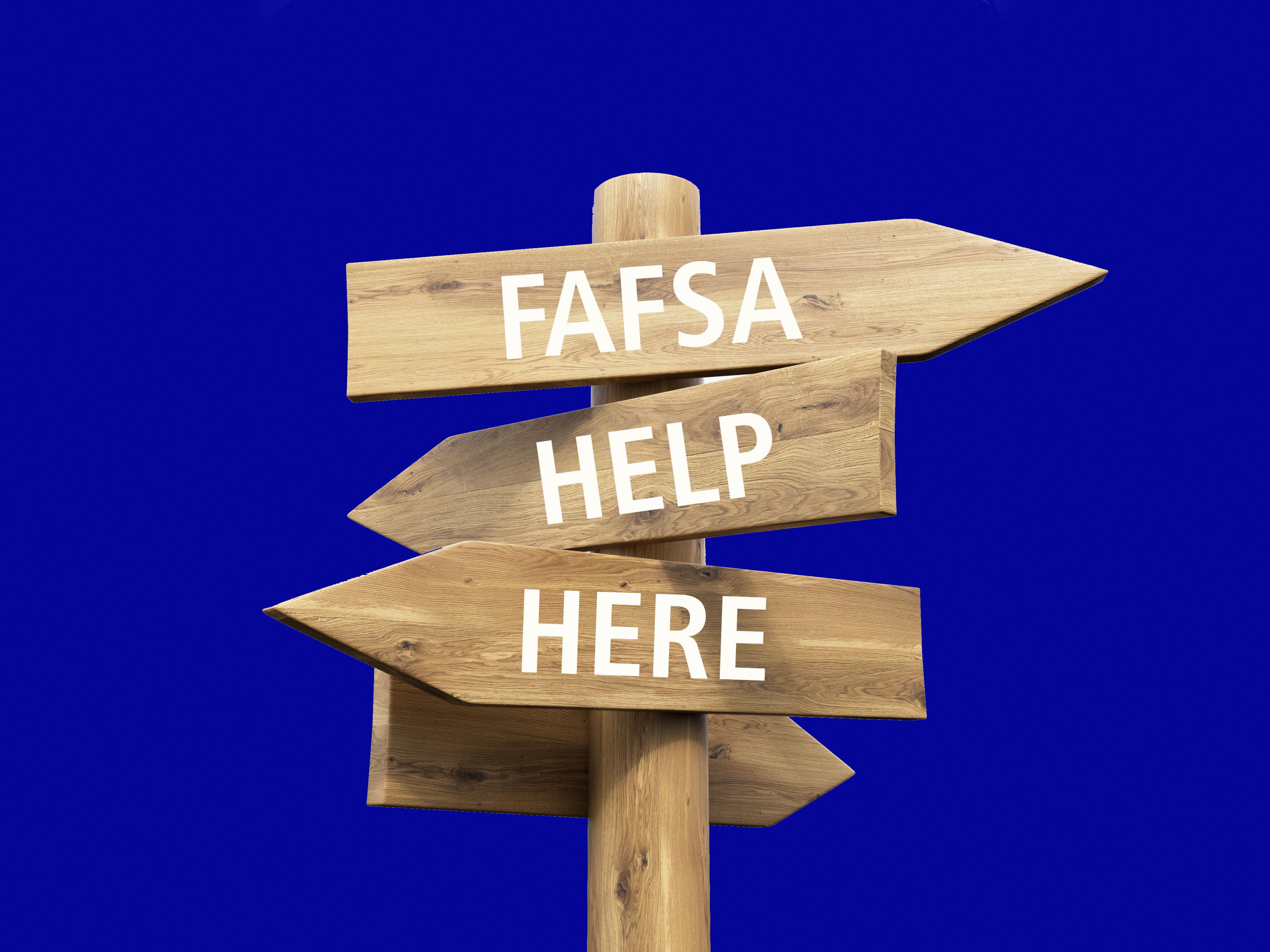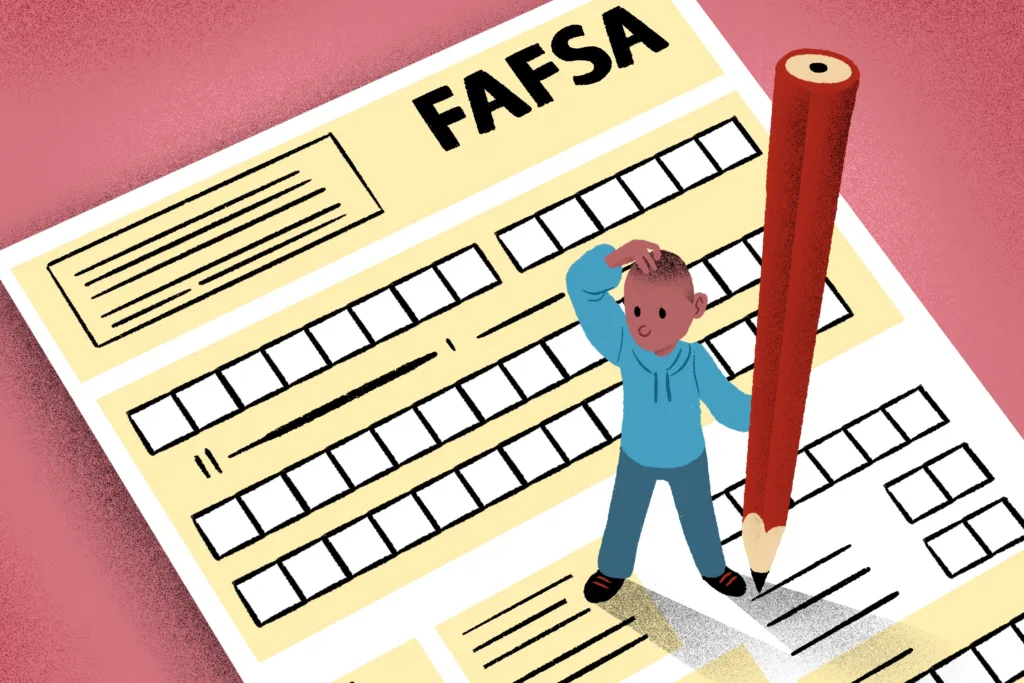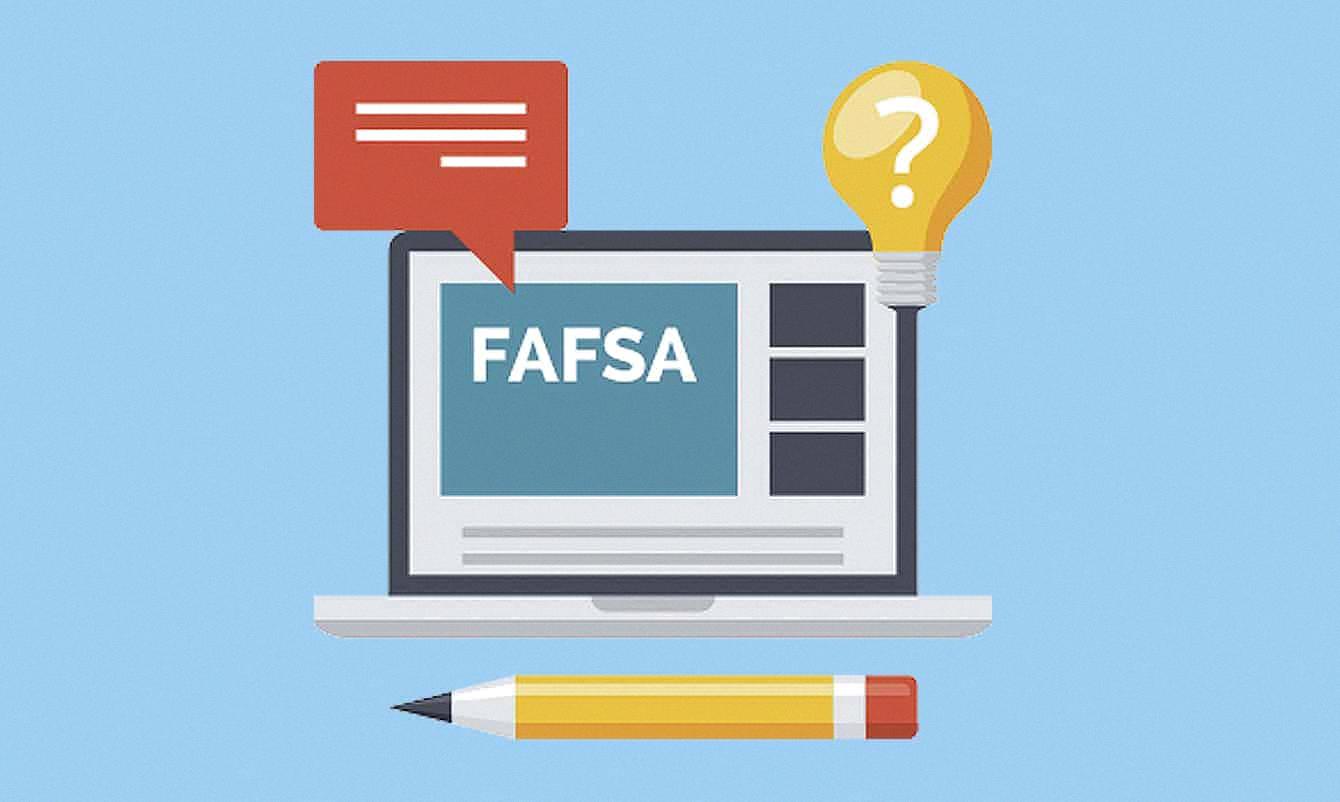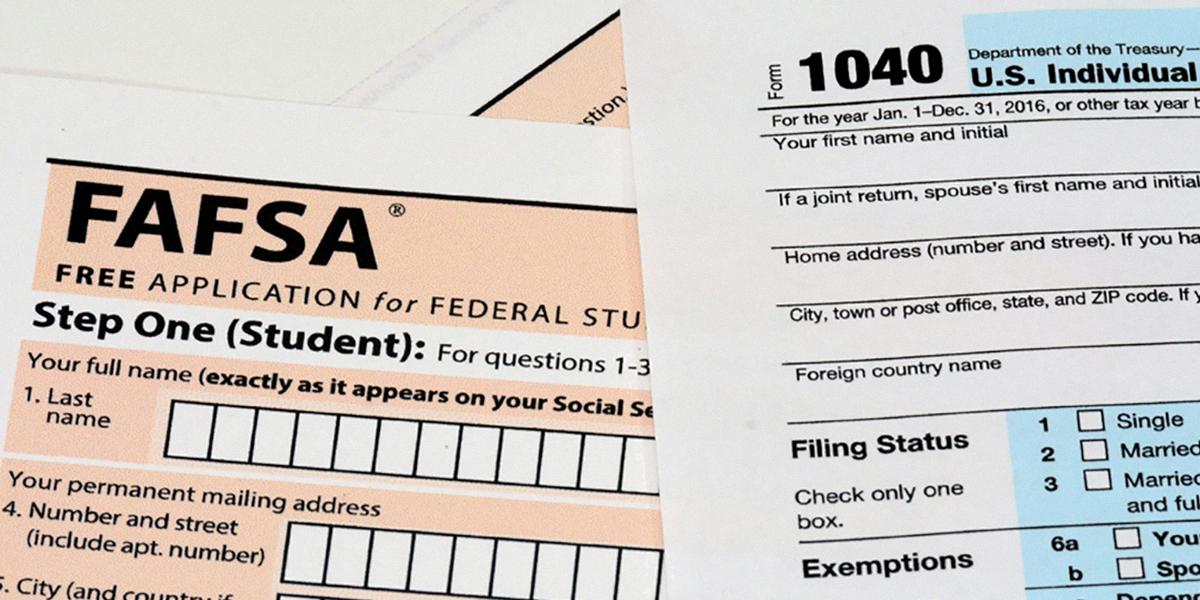As a college student, one of the biggest worries you might have is how to pay for your living expenses. Fortunately, the Free Application for Federal Student Aid (FAFSA®) can help students cover some of the costs associated with housing.
If you’re enrolled full time, you can use your financial aid award to help pay for living expenses, including room and board, meal plans, utilities, and school supplies. However, it’s important to note that most students do not receive more financial aid if they live off-campus. In fact, in many cases, they will receive less financial aid.
Ultimately, the amount of aid you receive is determined by the university’s estimates for on-campus and off-campus housing. Financial aid is any type of assistance used to pay college costs including tuition as well as living expenses like rent, food, and transportation. You can use financial aid to cover your school’s cost of attendance, which could include both on-campus and off-campus housing.
But limits apply to the amount of financial aid you can get. Your financial aid award also might not be enough to cover the full cost of attendance. That’s why it’s important to carefully budget and plan for your living expenses.
If you’re considering living off-campus, it’s important to weigh the pros and cons. While it might be cheaper than living on-campus, you’ll need to factor in additional expenses such as rent, utilities, and transportation. Plus, living off-campus might mean you’ll need to purchase your own groceries and cook your own meals.
When it comes to housing, the FAFSA® does not discriminate between living on or off-campus. However, it’s important to note that some schools have specific requirements for students who choose to live off-campus. For example, you might need to proide proof of rent or utilities payments to receive financial aid for living expenses.
The FAFSA® can help cover some of the costs associated with housing, whether you’re living on or off-campus. However, it’s important to carefully budget and plan for your living expenses, and to make sure you understand the specific requirements of your school when it comes to using financial aid for housing. With proper planning and budgeting, you can make the most of your financial aid award and focus on your studies without worrying about your living expenses.
Does FAFSA Cover Expenses Related to Cost of Living?
FAFSA (Free Application for Federal Student Aid) does cover the cost of living if you are enrolled full time. The financial aid award can be used to help pay for varios living expenses, including but not limited to, room and board, meal plans, utilities, and school supplies. The funds from FAFSA can help alleviate the financial burden of living expenses while pursuing a degree. However, it is important to note that the amount of aid you receive may vary depending on your individual financial situation and the cost of living in your area. It is recommended that you fill out the FAFSA application to determine your eligibility for financial aid and the amount you may receive to cover living expenses.

Source: edvisors.com
Does Living On Campus Affect FAFSA Award Amount?
The Free Application for Federal Student Aid (FAFSA) is a form that students in the United States fill out to determine their eligibility for financial aid for college or university. One common misconception is that FAFSA gives more money if you live on campus. However, this is not necessarily true.
While it is true that some schools may offer additional financial aid to students who live on campus, the amount of aid you receive ultimately depends on the total cost of attendance as determined by the university. This cost of attendance includes tuition, fees, books, and housing. When you fill out the FAFSA, the amount of aid you are eligible to receive is based on your financial need, which is calculated by subtracting your expected family contribution (EFC) from the cost of attendance.
The university’s estimates for on-campus and off-campus housing are taken into consideration when determining the cost of attendance. This means that whether you live on or off campus, the total cost of attendance is unlikely to change significantly. As a result, the amount of financial aid you receive will also be relatively consistent, regarless of whether you live on or off campus.
It is worth noting, however, that living on campus may come with additional expenses, such as meal plans and dormitory fees, that could increase the overall cost of attendance. If this is the case, then living on campus could potentially increase the amount of financial aid you are eligible to receive. It is important to check with your university’s financial aid office to determine the specific policies and procedures for financial aid disbursement.
Does FAFSA Take Rent Payments Into Consideration?
FAFSA (Free Application for Federal Student Aid) does consder rent as a living expense when calculating a student’s financial need. When you fill out the FAFSA form, you will be asked to provide information about your living situation, including whether you live on campus, off campus or with your parents. If you indicate that you live off-campus, you will be asked to provide the amount of rent you pay each month. This information will be taken into consideration when determining your Expected Family Contribution (EFC), which is used to determine your financial aid eligibility. Keep in mind that FAFSA only considers reasonable living expenses, so if your rent is unusually high, it may not be fully covered by financial aid.
Does Financial Aid Cover Living in a Dormitory?
Financial aid can be used to cover the cost of living in a dorm. In fact, the cost of living on campus, including room and board, is typically included in the school’s cost of attendance. This means that the financial aid you receive can be used to cover your dorm expenses, along with other expenses such as tuition, textbooks, and fees. However, it’s important to note that there are limits to the amount of financial aid you can receive, and your financial aid award may not necessarily cover the full cost of your dorm expenses. Additionally, some schools may have different policies regardng how financial aid can be used to cover room and board expenses, so it’s important to check with your school’s financial aid office for specific information.
What Does FAFSA Cover?
Federal student aid, obtained thrugh the Free Application for Federal Student Aid (FAFSA), covers a wide range of expenses associated with attending college or university. These expenses may include tuition and fees, room and board, textbooks, and supplies. In addition, FAFSA funds can be used to cover other related expenses, such as transportation and a computer. Furthermore, FAFSA may provide aid for dependent care, enabling students with children to attend school and focus on their academic pursuits. It is important to note that the specific amount of aid awarded through FAFSA varies based on the student’s financial need and the cost of attendance at their chosen institution.

Monthly Payment Amount for FAFSA
FAFSA, or Free Application for Federal Student Aid, is not a program that offers monthly payments. However, if you are approved for federal student loans through FAFSA, your monthly payments will be based on your income and family size. The payment amount will either be 10 or 15 percent of your discretionary income, depending on when you received your first loans. These payments will never be more than what you would have paid under the 10-year Standard Repayment Plan. It is important to note that payments are recalculated each year based on your updated income and family size.
Maximum Amount of FAFSA Assistance
The maximum amount the Free Application for Federal Student Aid (FAFSA) will give is dependent on seveal factors, including your financial need, cost of attendance at your chosen school, and enrollment status. However, the maximum amount of Federal Pell Grant award for the 2022-23 award year is $6,895. This amount can change yearly, and it is important to note that not all students will receive the maximum amount. The FAFSA is used to determine your eligibility for federal aid, including grants, work-study programs, and loans. It is recommended that all students complete the FAFSA to see what financial aid they may be eligible for.
At What Income Level Does FAFSA No Longer Provide Financial Benefits?
There is no specific income threshold at which FAFSA is not worth it. Even if your income is high, it is still recommended to fill out the FAFSA form as it could potentially help you qualify for some financial aid. The FAFSA takes into consideration several factors such as family size, number of family members in college, and other financial obligations. Additionally, some colleges and universities require the FAFSA to be completed in order to be considered for certain scholarships or grants. Therefore, it is always worth filling out the FAFSA form regardless of your income level.
Comparing the Costs of Living On-Campus Versus Off-Campus
When it comes to deciding between living on or off-campus, the cost is a significant factor to consider. Generally, living off-campus is cheaper than living on-campus, as the rental cost of off-campus housing is typically lower than the price of a room or bed in a college dormitory. However, it’s important to note that the cost of living off-campus may not always be significantly lower as additional expenses like utilities, furniture, and fixtures may add up. These additional costs can eventually scale up the cost of living off-campus and bring it to par or sometimes more than the cost of college dorms. Therefore, it’s important to conider all the factors involved in both options before making a decision on which is the most cost-effective.

Source: thecollegeinvestor.com
Does the FAFSA Monitor Bank Accounts?
FAFSA does not directly check or view the bank accounts of the student or the parent. However, if a student is selected for verification, they may be required to povide additional documentation, including bank statements, to confirm the information reported on their FAFSA form. This is not done to check the student’s or parent’s bank accounts, but rather to ensure that the financial information provided on the FAFSA form is accurate and complete. It is important for students to keep accurate records of their finances and to report them honestly on their FAFSA form to avoid any potential issues during the verification process.
The Purpose of FAFSA Asking About Housing
FAFSA, or Free Application for Federal Student Aid, is a tool used by the federal government to determine the amount of financial aid a student is eligible to receive. One of the factors considered in this calculation is the student’s housing situation. The reason for this is that the cost of housing can vary greatly depending on where a student lives. For example, living on campus or in an apartment can be more expensive than living at home with family. By asking about a student’s housing situation, FAFSA can determine the maximum amount of financial aid a student may need to cover thse expenses. This information is then used to determine the student’s Expected Family Contribution (EFC), which is the amount of money that the student and their family are expected to contribute to their education. Therefore, it is important to accurately report your housing situation on the FAFSA to ensure that you receive the appropriate amount of financial aid.
Should I Disclose My Homeless Status on FAFSA?
You should disclose if you are homeless or at risk of becming homeless on the Free Application for Federal Student Aid (FAFSA) form. This information is used to determine your eligibility for various forms of financial aid, such as the Federal Pell Grant, work-study programs, and other need-based aid. It is important to answer this question truthfully and accurately, as it can affect the amount of aid you receive. Additionally, if you are homeless or at risk of becoming homeless, you may qualify for additional support services and resources through your school’s financial aid office. Therefore, it is recommended that you disclose this information on the FAFSA form to ensure that you are eligible for all the financial aid and resources available to you.
Can FAFSA Cover All College Expenses?
FAFSA, or the Free Application for Federal Student Aid, is an application that millions of students fill out each year to apply for financial aid to help pay for college. The financial aid awarded based on the FAFSA can be used to pay for a variety of college expenses, including tuition, fees, textbooks, and other educational expenses. While it is possible that FAFSA can cover everything, in practice, it is unlikely.
The amount of financial aid awarded to a student is based on their financial need, which is determined by the infomation provided on the FAFSA application. The cost of attendance at each college also plays a role in determining the amount of financial aid a student will receive. While financial aid can cover a significant portion of a student’s college expenses, it is rare for it to cover everything.
There are several reasons why FAFSA may not cover everything. First, the cost of attendance at some colleges is higher than others, and financial aid may not be enough to cover the full amount at some institutions. Additionally, some colleges may not offer enough financial aid to cover all of a student’s expenses, even if the student has demonstrated significant financial need.
FAFSA can provide substantial financial aid to help cover college expenses, including tuition and fees. However, it is unlikely that it will cover everything, and students should be prepared to cover some of their college expenses out of pocket or through other sources of funding.

Source: collegeaidservices.net
Living on Financial Aid
Financial aid can be used for a variety of education-related expenses, including tuition, fees, textbooks, and room and board. This means that it is possible to use financial aid to cover your living expenses, but it depends on the type and amount of financial aid you receive. Grants and scholarships, for example, do not need to be repaid and can be used for any education-related expense, including living expenses. However, federal student loans may have borrowing limits that could affect your ability to cover all of your living expenses. Additionally, it is important to carefully budget and prioritize your expenses to make sure you can cover your basic needs whle in school. it is possible to live off of financial aid, but it requires careful planning and budgeting to make sure you can cover all of your expenses without taking on too much debt.
Living on Financial Aid
Financial aid can help cover various college expenses, including tuition, books, and living expenses. So, it is possible to use financial aid to cover your living expenses while in college. However, it’s important to keep in mind that the amount of financial aid you receive will depend on your financial need, wich is determined by your FAFSA application. Additionally, the financial aid you receive cannot exceed your cost of attendance (COA), which is determined by your school and includes living expenses. Therefore, it’s important to budget and plan accordingly to ensure you can cover all of your expenses with the financial aid you receive.
Conclusion
FAFSA® can help cover a variety of living expenses, including housing. If you are enrolled full-time, your financial aid award can be used for room and board, meal plans, utilities, and school supplies. However, it is important to note that most students do not receive more financial aid if they live off-campus, and in some cases, they may receive less. The amount of aid you receive is determined by the university’s estimates for on-campus and off-campus housing, and there are limits to the amount of financial aid you can receive. It’s essential to keep in mind that your financial aid award may not cover the full cost of attendance, so it’s crucial to budget accordingly and consder other sources of funding if necessary. FAFSA® can be a useful tool to help pay for housing and other college expenses, but it’s important to understand its limitations and plan accordingly.
